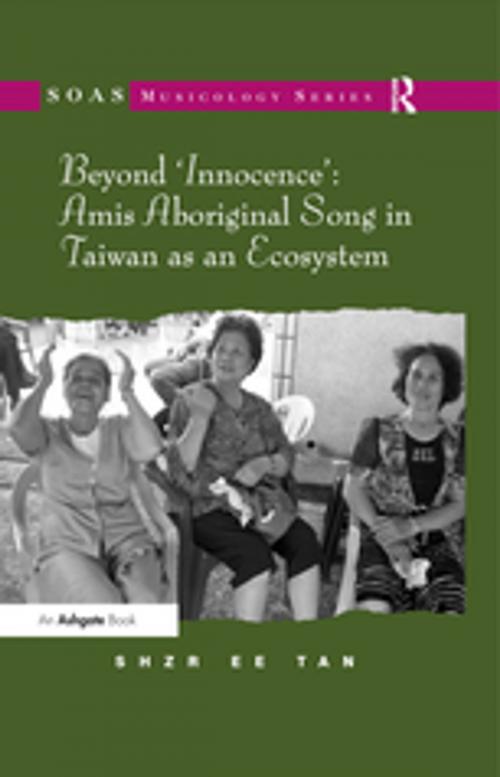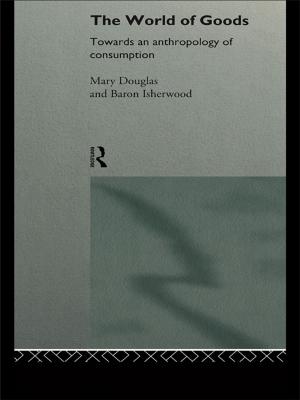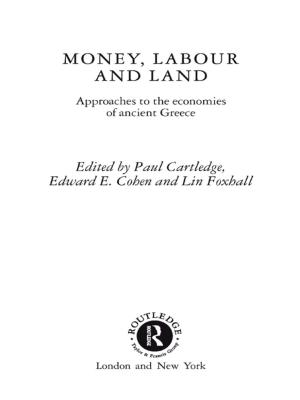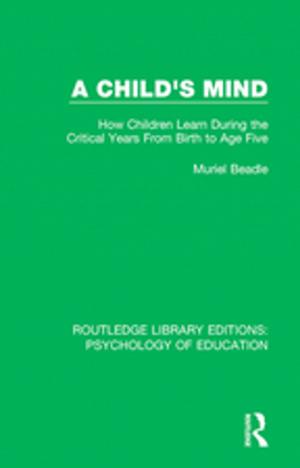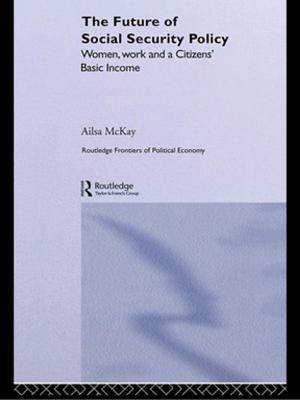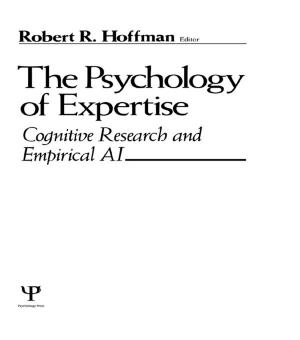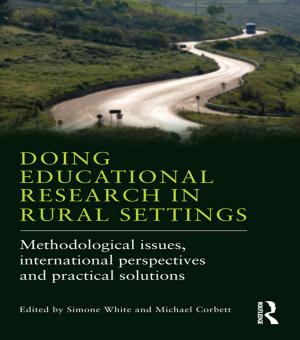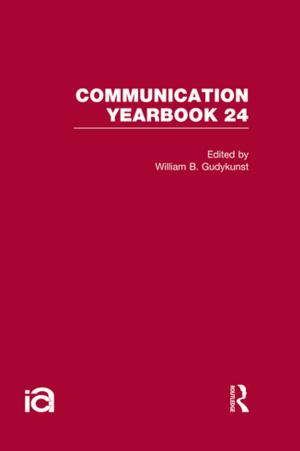Beyond 'Innocence': Amis Aboriginal Song in Taiwan as an Ecosystem
Nonfiction, Entertainment, Music, Music Styles, Folk & Traditional| Author: | ShzrEe Tan | ISBN: | 9781351574082 |
| Publisher: | Taylor and Francis | Publication: | July 5, 2017 |
| Imprint: | Routledge | Language: | English |
| Author: | ShzrEe Tan |
| ISBN: | 9781351574082 |
| Publisher: | Taylor and Francis |
| Publication: | July 5, 2017 |
| Imprint: | Routledge |
| Language: | English |
Taiwan aboriginal song has received extensive media coverage since the launch and settlement of a copyright lawsuit following pop group Enigma's allegedly unauthorized use of Amis voices in the 1996 Olympics hit, Return To Innocence. Taking as her starting point the ripple effects of this case, Shzr Ee Tan explores the relationship of this song culture to contemporary Amis society. She presents Amis song in its multiple manifestations as an ecosystem, symbiotic components of which interact and feed back upon one another in cross-cutting platforms of village life, festival celebration, cultural performance, popular song, art music and Christian hymnody. Tan's investigation hinges upon drawing a conceptual line between ladhiw, the Amis term for 'song' - a word vested with connotations of life-force, tradition, ritual and taboo - and the foreign term of yinyue ('music' - borrowed from Mandarin). This difference forms the basis of how Amis song is (re)constructed through processes of modernization, Christianization and politico-economic change. A single Amis melody, for example, can exist in several guises that are contextually exclusive but functionally mutually-supportive. Thus, a weeding song (ladhiw), which may have lost its traditional context of existence following advancements in farming technology, becomes sustained within a larger ecosystem, finding new life on the interacting platforms of Amis Catholic hymnody, karaoke and tourist shows. The latter genres (collectively, yinyue) may not rely on traditional livelihoods for survival, but thrive on a traditional melody's deeper associations to local memory and idealized Amis identities. While these new and old genres are stylistically separate, they feed into each other and back into themselves - through transforming contexts and cross-referenced memes - in organic and developing cycles of song activity. Drawing from fieldwork conducted from 2000-2010 as well as a background in ethnomusicology and journalism, Ta
Taiwan aboriginal song has received extensive media coverage since the launch and settlement of a copyright lawsuit following pop group Enigma's allegedly unauthorized use of Amis voices in the 1996 Olympics hit, Return To Innocence. Taking as her starting point the ripple effects of this case, Shzr Ee Tan explores the relationship of this song culture to contemporary Amis society. She presents Amis song in its multiple manifestations as an ecosystem, symbiotic components of which interact and feed back upon one another in cross-cutting platforms of village life, festival celebration, cultural performance, popular song, art music and Christian hymnody. Tan's investigation hinges upon drawing a conceptual line between ladhiw, the Amis term for 'song' - a word vested with connotations of life-force, tradition, ritual and taboo - and the foreign term of yinyue ('music' - borrowed from Mandarin). This difference forms the basis of how Amis song is (re)constructed through processes of modernization, Christianization and politico-economic change. A single Amis melody, for example, can exist in several guises that are contextually exclusive but functionally mutually-supportive. Thus, a weeding song (ladhiw), which may have lost its traditional context of existence following advancements in farming technology, becomes sustained within a larger ecosystem, finding new life on the interacting platforms of Amis Catholic hymnody, karaoke and tourist shows. The latter genres (collectively, yinyue) may not rely on traditional livelihoods for survival, but thrive on a traditional melody's deeper associations to local memory and idealized Amis identities. While these new and old genres are stylistically separate, they feed into each other and back into themselves - through transforming contexts and cross-referenced memes - in organic and developing cycles of song activity. Drawing from fieldwork conducted from 2000-2010 as well as a background in ethnomusicology and journalism, Ta
